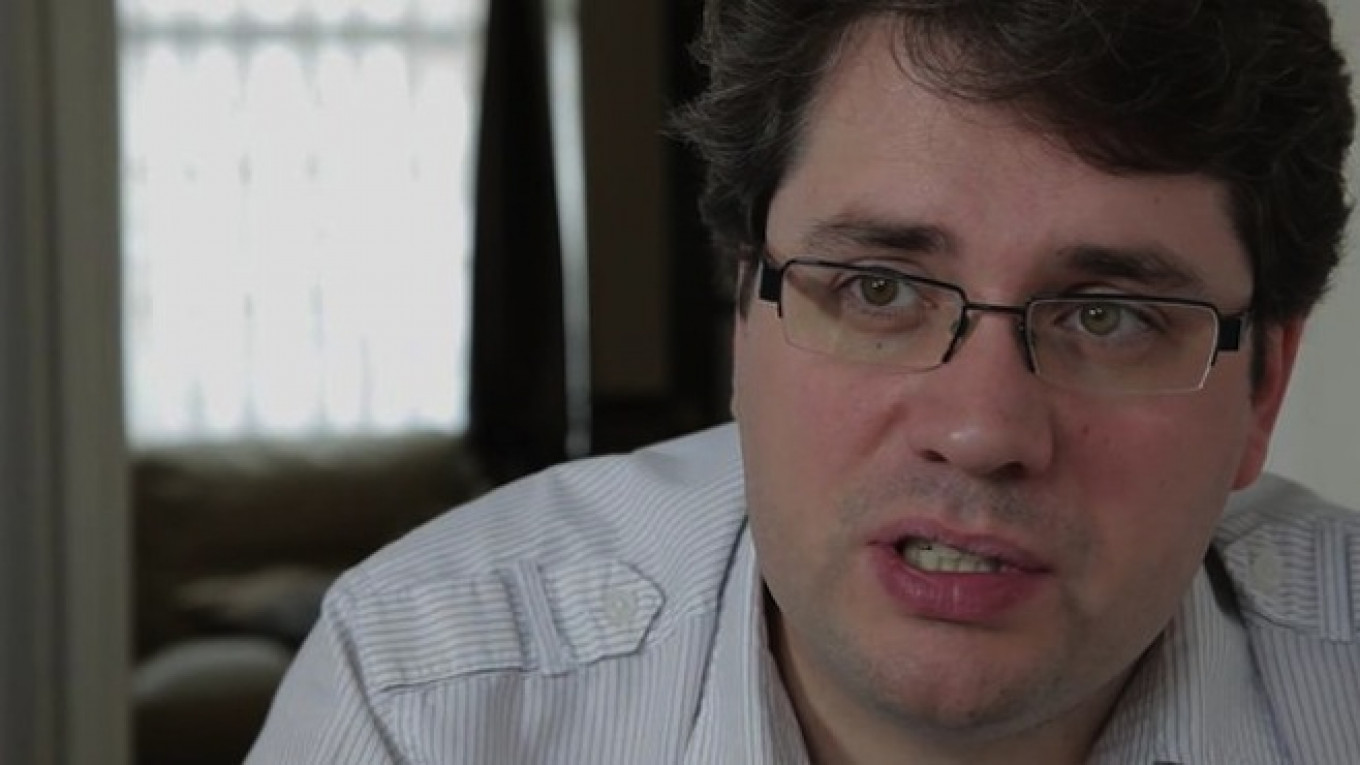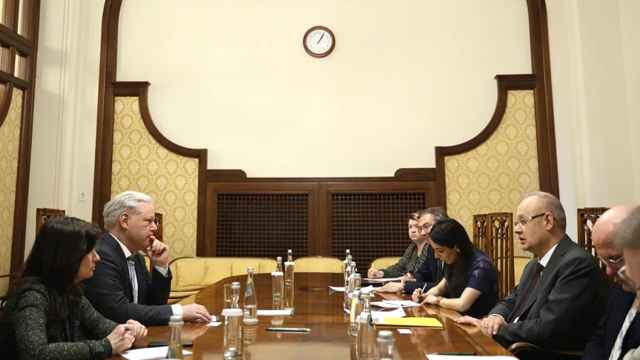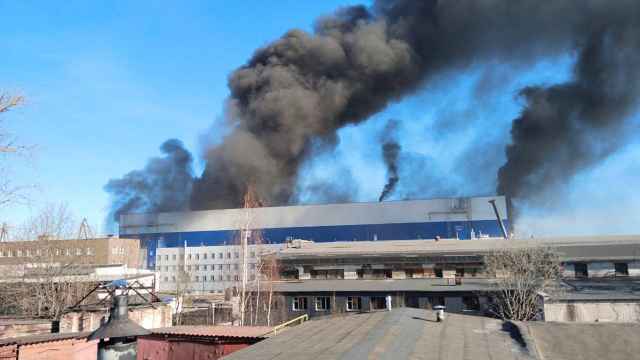It was not an unusual evening for war blogger Eliot Higgins.
As he was rocking his infant son to sleep in his bedroom in the English city of Leicester, Higgins, who has written in-depth reports on the conflict in eastern Ukraine, was engaging in an online war of words with a pro-Kremlin blogger over Twitter.
This time he and his Bellingcat project, funded by fans and supporters, were being accused of taking money from Kiev to produce some of his hardest-hitting work, which has riled pro-Kremlin separatists and those in Moscow who support them.
Multi-tasking while on baby duty, Higgins called his detractor a "deluded idiot" and signed off on that night in late January.
"I was just killing time while I got my [then] two-month-old fast asleep … gotta wait 30 minutes just to be sure at this point, so I just sit around waiting. This kills time nicely," he said.
Higgins first came to prominence while blogging on Syria's civil war under the pseudonym "Brown Moses," an activity he started as a hobby in 2012 about the time he was laid off from work.
Using techniques based on satellite imagery and social networks, he was among the first to identify new foreign weapons, mainly Croatian-made, that were reaching the Syrian rebels. After a chemical weapons attack in Damascus in August 2013, he located footage of the suspected warheads within hours.
More recently Bellingcat, which brings together "seven or eight" volunteers and other contributors, has investigated some of the most sensitive episodes in the Ukraine conflict, where Moscow rejects what NATO says is overwhelming evidence that it has intervened with troops and tanks to back the separatist rebels.
Downed Plane
When a Malaysian airliner was shot down over rebel-held Ukrainian territory on July 17 last year, killing all 298 people on board, Bellingcat used open Internet-based resources to identify what it said was a BUK missile system supplied to the rebels from Russia. It found that after the attack, the launcher returned to Russia, minus one of its missiles.
Russia itself has said the plane was likely shot down by Ukraine's military. Most of the passengers were from the Netherlands, which is still investigating the incident.
A Bellingcat report published last week analyzed three artillery attacks and the more than 1,300 craters they left behind in eastern Ukraine to come to the conclusion that Ukrainian troops were fired at from inside Russia.
"Every time we did one of these sites, they always pointed back to sites inside Russia with a pretty small margin of error," said Higgins.
Russia denies being a party to the conflict in eastern Ukraine, and Higgins' controversial findings and methods have made him an object of scorn for pro-Russia commentators. Days after last week's report came out, the pro-Kremlin Sputnik media outlet suggested he had ties to the CIA.
Taking on Critics
Higgins, 35, enjoys engaging with his detractors online and stands behind his techniques, which rely among other things on satellite imagery of weapons craters and the tracks left by military vehicles, as well as U.S. army manuals on artillery.
He says he is working now on getting his methodology peer-reviewed so it can be taught more widely.
"That's something we want to teach students. It's great because it combines satellite mapping, image analysis, geo-location, social media investigation," he said.
That may help silence some of the online criticism of his lack of military experience or on-the-ground verification.
Vasily Kashin, of the Moscow-based defense think tank CAST, says Higgins' research may not take account of cluster bombs from which smaller munitions can fall on separate trajectories.
He also casts doubt on images that Bellingcat says are tracks left on the ground by Russian military vehicles and weapons systems, saying some are impossible to distinguish.
Still, Higgins is confident his method is watertight and will continue to be used to study conflict in the future, perhaps even providing a basis for investigating war crimes.
"There's a huge amount left to explore," he said.
A Message from The Moscow Times:
Dear readers,
We are facing unprecedented challenges. Russia's Prosecutor General's Office has designated The Moscow Times as an "undesirable" organization, criminalizing our work and putting our staff at risk of prosecution. This follows our earlier unjust labeling as a "foreign agent."
These actions are direct attempts to silence independent journalism in Russia. The authorities claim our work "discredits the decisions of the Russian leadership." We see things differently: we strive to provide accurate, unbiased reporting on Russia.
We, the journalists of The Moscow Times, refuse to be silenced. But to continue our work, we need your help.
Your support, no matter how small, makes a world of difference. If you can, please support us monthly starting from just $2. It's quick to set up, and every contribution makes a significant impact.
By supporting The Moscow Times, you're defending open, independent journalism in the face of repression. Thank you for standing with us.
Remind me later.






